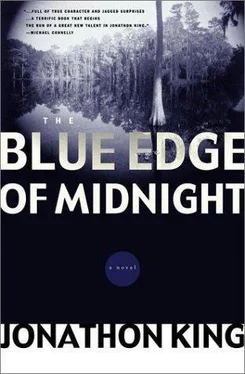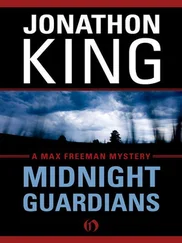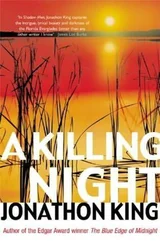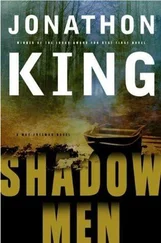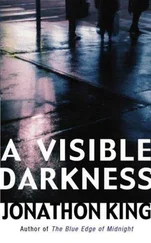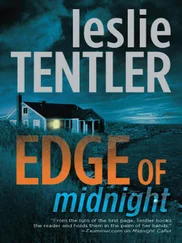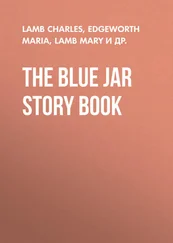Jonathon King - The Blue Edge of Midnight
Здесь есть возможность читать онлайн «Jonathon King - The Blue Edge of Midnight» весь текст электронной книги совершенно бесплатно (целиком полную версию без сокращений). В некоторых случаях можно слушать аудио, скачать через торрент в формате fb2 и присутствует краткое содержание. Жанр: Триллер, на английском языке. Описание произведения, (предисловие) а так же отзывы посетителей доступны на портале библиотеки ЛибКат.
- Название:The Blue Edge of Midnight
- Автор:
- Жанр:
- Год:неизвестен
- ISBN:нет данных
- Рейтинг книги:4 / 5. Голосов: 1
-
Избранное:Добавить в избранное
- Отзывы:
-
Ваша оценка:
- 80
- 1
- 2
- 3
- 4
- 5
The Blue Edge of Midnight: краткое содержание, описание и аннотация
Предлагаем к чтению аннотацию, описание, краткое содержание или предисловие (зависит от того, что написал сам автор книги «The Blue Edge of Midnight»). Если вы не нашли необходимую информацию о книге — напишите в комментариях, мы постараемся отыскать её.
The Blue Edge of Midnight — читать онлайн бесплатно полную книгу (весь текст) целиком
Ниже представлен текст книги, разбитый по страницам. Система сохранения места последней прочитанной страницы, позволяет с удобством читать онлайн бесплатно книгу «The Blue Edge of Midnight», без необходимости каждый раз заново искать на чём Вы остановились. Поставьте закладку, и сможете в любой момент перейти на страницу, на которой закончили чтение.
Интервал:
Закладка:
In another thirty minutes we pushed through a shallow bog of cattails and green maidencane to a canal levee where a culvert fed fresh water to the river. Brown jumped out into knee- deep water and I followed as he tugged his skiff up the grass-covered levee bank with a half dozen lunges. I tried to push from the stern but wasn't much help and I was again awed by the strength coming out of a small man who we'd already determined was nearly eighty years old.
From the high berm I looked out over the open expanse of Everglades and tried to get a fix on our direction, but Brown had the skiff floating again and his silence screamed, "Get your ass down here." I knew we were on the L-10 canal and headed deep into the Glades. The canal system had been dredged eighty years ago to transport commercial fish and produce from Lake Okeechobee, the huge liquid heart of Florida, to the shipping centers on the coast. But I couldn't tell how far or how fast we were going. Now in open water, Brown used the full power of the pole and could push the skiff nearly a hundred yards with a single stroke. He worked silently, except the times he spotted an alligator lying in the grass at the water's edge or a snout like a floating chunk of dark-colored bark in the distance.
"Gator," he would call out, not in warning, but like a cop in a prowl car might say "crackhead" or "eight-baller" to his partner as they cruised a drug area. This was Brown's work sector. The neighborhood he knew. I was on his turf and at his mercy.
As the sun climbed up the sky he did not seem to tire or slow or even sweat. I had to admire his ability to grind. After more than an hour he suddenly stopped poling and steered to the side. No marker. No trail. No indication that this spot was any different than the miles we'd already passed. When he jumped down into the water I followed and we hoisted the skiff to the top of the berm. To the west lay acres of freshwater marsh, stretched out golden in the high sun just like I'd seen from the cockpit of Gunther's plane. On the horizon was a faint line of dark green rising like a ridge and bumping the skyline. We had to pull the skiff some thirty yards through shallow water and around clumps of grass the size of small autos until Brown found a serpentine trail of deeper water that spun out toward the faint hardwood hammock in the distance. He tossed me a quart of water in a clear Bell canning jar. It was sealed with a metal screw-on collar and a rubber rimmed lid.
"We'll be there directly," he said, stripping off his shirt to expose a sleeveless white T-shirt underneath. I had taken off my own shirt and draped it over my head and shoulders as protection against the sun. We pushed off again and this time Brown took up a spot on a smaller poling platform at the back of the skiff. He started us down the middle of the water trail and I straddled the center platform, alternately looking ahead trying to keep my bearings and watching him, standing above me, framed in the blue canvas of sky and squinting into the distance.
"Who brought her out here, Nate?" I finally asked, wondering if he would let go of it.
"Ain't for me to say," he answered, and I wasn't sure whether the response meant he knew but wouldn't tell, or that he simply wouldn't speculate. But somehow I believed that it had not been him.
In short time I lost track of the turns and directions we moved. I had no clue why he took one watery path over another. On occasion I would stand up on the platform, wobbling the boat, and see that we were gaining on the line of trees. Then I would sit back down and take a drink from the jar. The heat was rising and the sawgrass smelled warm and close, like hay in a summer barn, but the sweet odor of wet decay mixed with it to create an odd perfume. It was not like my river where everything was dominated by moisture. Out here the battle between a drying sun and the soaking water was waged in the six- foot-high envelope of space we were sliding through.
I didn't know how much time had passed. An hour, maybe more, as the wall of trees grew taller and more distinct. Finally Brown shoved the nose of the skiff up into the grass and we stepped out onto semi-solid land. He yanked the boat up on a dry mound.
"Got to walk in," he said, and started off.
I stuck the water jar in my bag and followed, watching where he stepped and peeking ahead, hoping to see some sign of a destination. We walked thirty yards through ankle-deep mud, my boots making sucking noises with each step. Then we climbed a gradual rise onto a dry ridge and plunged into the hammock.
I slipped my shirt back on and it stuck to my skin with sweat and when we stepped into the shade it quickly took on the feel of a cold wet cloth. The place was filled with thick trees; reddish gumbo-limbo whose limbs bent and curled at odd angles, mahogany that was native to South Florida but had been harvested out of most areas, and scaly, black-spotted poisonwood that was dangerous to the touch.
There was no trail. Brown made his own and I tried to follow but where he gracefully ducked past wide swathes of spiderwebs, I caught them full in the face, the sticky filament pasting across my eyes and lips. While I wiped at the strands I would trip over a root or knot of vines and then look up to see Brown fading into the vegetation and shadows ahead.
I struggled to keep up, slushing down through water-filled ditches and back up over downed trunks of mottled pigeon plum. But my eyes had adjusted to the filtered light and after several minutes I could see the unnatural shape of dark right angles in the trees up ahead. A structure became more defined, and when we got to the clearing, I could see it was a shack not unlike my own but in sadder shape. Balanced on top of a shell mound, it was built of rough-hewn lumber that was darkly weathered and rotting at its corners. The spine of the tar- papered roof was broken and sagged at the middle. A tall wooden rack that might have served as a child's swing in another world stood off to the side and was hung with alligator skins from four to six feet long.
Brown had stopped at the edge of the clearing and stood staring at the building, his eyes narrowed as if he was still in the sun, his shoulders slumped slightly. He was going no farther, and for the first time in the journey he seemed tired.
"You'll have to git her," he said with a nod at the shack.
CHAPTER 20
I strode across the scuffed incline to the front steps, looking back at Brown only once to confirm that he was not following. The first step up to the raised porch creaked under my boot. I hesitated at the hinged plank door and listened for several seconds to stone quiet. Then I turned the dull metal knob and went in low and quick.
The room was in muted darkness. The only two windows were so smeared with dirt that the little light that snuck through was yellow and dull.
I came slowly out of my crouch and could make out a three- legged table that had tumbled against the front wall without its balance. A small stone fireplace was to the left, its ashes dead. A chair was standing alone in the middle of the floor, the seat facing the door as if someone had been waiting. I picked up the glint of broken glass from an oil lamp that had been shattered, its pieces scattered in one corner. The room smelled of animal grease, rotted food and wet smoke. My eyes adjusted, but I still almost missed her.
She was on the floor, partly wrapped in a child's filthy blanket and tucked far under a wood-framed cot. Her eyes were closed but when I touched her I felt soft muscle quiver under my hand.
"It's all right, sweetheart. It's OK. I'm here to help you. You're all right now," I said softly.
I got my hands around her and slowly pulled her out from under the bed. She did not fight but I heard a tiny keening start up in the back of her throat and it was heart-wrenching to know that that was all the struggle she had left in her.
Читать дальшеИнтервал:
Закладка:
Похожие книги на «The Blue Edge of Midnight»
Представляем Вашему вниманию похожие книги на «The Blue Edge of Midnight» списком для выбора. Мы отобрали схожую по названию и смыслу литературу в надежде предоставить читателям больше вариантов отыскать новые, интересные, ещё непрочитанные произведения.
Обсуждение, отзывы о книге «The Blue Edge of Midnight» и просто собственные мнения читателей. Оставьте ваши комментарии, напишите, что Вы думаете о произведении, его смысле или главных героях. Укажите что конкретно понравилось, а что нет, и почему Вы так считаете.
